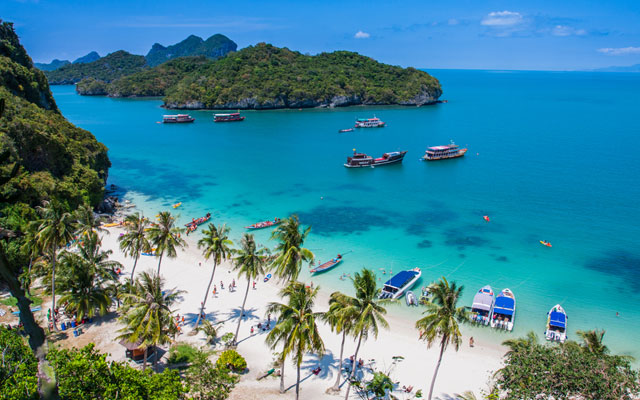As Thailand looks forward to a 140 billion-baht (US$3.8 billion) surge in revenue from Chinese tourists looking to benefit from relaxed entry regulations, there are calls from Koh Samui to extend the campaign to visitors from other regions.
As of September 25, and running until February 2024, Chinese tourists are encouraged to visit without a visa, reducing the financial burden and need for fiddly paperwork to experience an extended five-month stay in the country.

The scheme was introduced to boost arrivals from the Chinese mainland, the leading tourist source market before the Covid-19 pandemic, to previous levels and increase GDP.
However, on Koh Samui, where Chinese travellers only make up 10 per cent of arrivals, there are calls for a similar scheme to be rolled out to Europeans.
Susan Field, owner of Tembo Beach Club & Resort and former PR agency owner in Hong Kong, pointed out the country’s appeal for European digital nomads and remote workers.
“Tembo absolutely supports longer-term visas for Europeans 100 per cent. In general, the one-month Visa +1 month extension is fine for many, but the appeal of working virtually continues to grow, and the many benefits of Thailand, such as climate, good quality/value accommodation, and low cost of living, are appealing,” she shared.
“Flights are expensive these days, so attracting tourists to stay longer makes sense, especially if they don’t need to be in an office. Even the UK government allows its staff to work from overseas. It’s a trend we see growing.”
Jane Soergel, general manager for InterContinental Koh Samui, cited the success of previous schemes to encourage European travellers as a reason to reintroduce extended stays to other citizens from other countries: “This could greatly benefit both Thailand and Koh Samui in terms of boosting tourism, particularly during the winter months. This initiative was (first) introduced in 2022 as a means to aid tourism recovery, but unfortunately, it hasn’t seen an extension.”
Soergel also pointed out the differing entry requirements for Chinese and European tourists: “It’s important to note the difference between the newly implemented visa exemption for Chinese tourists and the current request for extended stay tourist visas for European visitors. Prior to this exemption, Chinese tourists were required to apply for a visa, whereas European Tourists are allowed to enter Thailand without applying for a visa.”
Another general manager from one of Koh Samui’s leading five-star luxury hotels, who chose to remain anonymous, noted that existing visa rules discourage long stays from all tourists, whatever their nationality.
“If visas are extended from 30 to 90 days to European countries, it will definitively help Samui as a destination. Samui is a destination where travellers return to and stay for a long time,” shared the general manager.
“The procedure of the tourist visa extension is annoying, time-consuming and puts travellers off. Instead, they may move on to another South-east Asian country instead of staying longer in Thailand. Especially with today’s travel habits and digital nomads, travellers will stay longer in Samui (and in Thailand).”




















